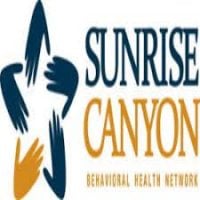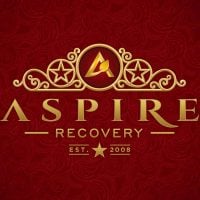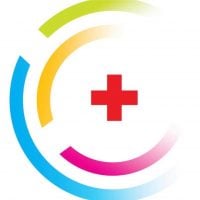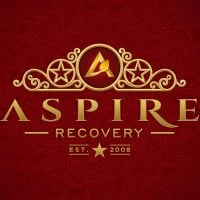Multiple patients have reported MCCAOD as permanently closed.
Research other rehabs in Lubbock, Texas, or get help finding an open facility.
About MCCAOD in Texas
MCCAOD is an experienced and reliable drug rehab treatment center in Lubbock, TX. For over 15 years, the business has been helping individuals overcome their addictions and substance abuse issues. Their knowledgeable staff are dedicated to helping everyone with whatever issues or addictions they are facing, from alcohol abuse to dual diagnosis and opioid addiction.
MCCAOD offers a range of levels of care and treatments, from family therapy and group therapy to intensive outpatient and sober-living residences. They ensure that their clients have access to the best possible care, personally taking the time to customize a treatment plan to meet the needs of each individual. Additionally, MCCAOD accepts private health insurance in order to make it easier for their clients to receive the quality care they provide.
Genders
Ages
Modality
Additional
Conditions and Issues Treated
Some addicts can benefit from substance abuse treatment, which is designed to help them become and remain sober without the use of medications. These programs are typically used by those struggling with drugs like marijuana or hallucinogens. However, they might be beneficial for those with a co-occurring mental health disorder like schizophrenia, major depression or bipolar disorder.
During this type of treatment, the addict will meet with therapists and other professionals on a regular basis to learn coping skills and healthy ways to deal with their addiction and mental health disorder.
Treatment programs often combine medications with counseling, support groups and even medical services like those found in hospitals or doctor’s offices. There are also detoxification services that addicts can use to get sober and avoid severe withdrawal symptoms.
Opioids are a group of drugs that include substances such as heroin, morphine, and oxycodone. These drugs activate opioid receptors in the brain, which produce pleasurable feelings. Opioid addiction occurs when drugs are abused at increasing rates or increasing amounts because the body becomes tolerant of them.
Opioid addiction is typically diagnosed when drug abuse becomes a typical behavior that interferes with an individual’s ability to function daily. The use of the substance results in consequences like legal problems.
Treatment for opioid addiction varies depending on each individual’s needs. Some treatments focus on replacing opioids with other drugs that have similar effects of reducing withdrawal symptoms. Other treatments aim to reduce the risk of relapse by providing psychological support or using more natural methods.
A drug rehab center that uses Dual Diagnosis is more likely to be successful in rehabilitating a person. Dual diagnosis helps to identify and treat any co-occurring disorders. It is essential to screen for both addiction and any untreated mental health issues. A dual diagnosis gives rehab the means to treat addiction while restoring mental and emotional health.
About 70% of patients with drug addiction have at least one other psychiatric diagnosis. Fortunately, dual diagnosis treatment is a proven model that has been highly effective.
Levels of Care Offered
This center offers a variety of custom treatment tailored to individual recovery. Currently available are Aftercare Support, Drug Rehab, Dual-Diagnosis, Intensive Outpatient, Outpatient, Residential, with additional therapies available as listed below.
An intensive outpatient program is usually the first phase of addiction treatment. It provides relief for those addicted, but not ready to commit to an inpatient setting. IOPs consist of a daily 3 to 5-hour program, and there is a required number of hours per week. The goal here is to teach patients healthy coping skills, such as stress management.
Outpatient programs offer a lower intensity level of addiction treatment than inpatient facilities. They are ideal for those who have graduated from inpatient facilities, have a supportive home environment, and are motivated to commit to the program. Services offered include medication-assisted treatment, individual and group therapy, and peer group support.
This treatment is a popular option for those suffering from a lower intensity addiction. It is not advisable for someone who needs to go through a medically supervised detox or does not have a supportive home environment. It requires motivation and dedication to commit to the program without constant monitoring.
Residential treatment programs are those that offer housing and meals in addition to substance abuse treatment. Rehab facilities that offer residential treatment allow patients to focus solely on recovery, in an environment totally separate from their lives. Some rehab centers specialize in short-term residential treatment (a few days to a week or two), while others solely provide treatment on a long-term basis (several weeks to months). Some offer both, and tailor treatment to the patient’s individual requirements.
Aftercare Support in drug rehab is crucial because it helps people stay sober after treatment. Aftercare Support in drug rehab is helpful because it provides the recovering person with a support group, including family members, friends, and other peers who are also in recovery.
The benefits of Aftercare Support are that it provides a pathway that will help people get sober for life. It supports healing at all levels, physical, mental, emotional, and spiritual. Another benefit of Aftercare Support is that participants learn to maintain their sobriety through holistic methods. They learn to modify behaviors individually to have peace of mind, have positive relationships with others, and find peace on the inside.
Therapies & Programs
During individual therapy at MCCAOD in , the person in recovery meets with a therapist one on one to go over their situation and learn from past mistakes. The counselor or therapist will use this time to address the causes of addiction, triggers, and any mental issue or dual diagnosis. They will also address aftercare plans, giving them the best chances of long-term sobriety.
This therapeutic process is very intense and challenging to go through. Some clients may find it easier to open up with someone apart from their family or loved ones who understand their struggles and experience with addiction.
Family therapy is designed to help addicts get clean and sober by using what they love the most; their family. Most drug treatment centers make it mandatory that the addict’s family attend therapy sessions, which is great because having everyone there to support them makes it much easier for them to get clean. Not only are they surrounded by people who want them to get better, but everyone is there because they want the best for them, not because they feel like they have to be.
Drug addicts are often surrounded by resentful or uneducated family members who would, at times, rather see them stay addicted because it makes their own lives easier. Sometimes they don’t understand what the addiction is or how they play a part in it. They know that during and after the addict’s sobriety journey, they will face challenges and changes that they aren’t sure how to handle. This can be very tough for an addict to go through on their own, which is why it’s so important that they have the support of their family. Just because someone is an addict does not mean that they don’t deserve the love and support of those around them.
Addicts in Lubbock, TX can find support in group therapy at MCCAOD by finding peers who understand their situation and being held accountable. They also learn to develop faith, understanding, and insight into their addiction through shared conversations.
Group Therapy is employed by drug treatment centers to provide the recovering addict with a platform to talk about their feelings and experiences. It also provides for an opportunity to learn from other addicts who have successfully overcome their addiction. It is recommended that all group members be recovering addicts for this type of therapy to work.
Payment Options Accepted
For specific insurance or payment methods please contact us.
Is your insurance accepted?
Ask an expert, call (888) 674-0062
Additional Details
Specifics, location, and helpful extra information.
Lubbock, Texas 79411 Phone Number(806) 780-8300 Meta DetailsUpdated November 25, 2023
Staff Verified
MCCAOD Patient Reviews
There are no reviews yet. Be the first one to write one.
Lubbock, Texas Addiction Information
Texas is one of the primary hubs for drug smuggling into the country. The border between Texas and Mexico is more than 1,000 miles long. More than 10 million residents use alcohol every year and more than 25% of those are minors. Alcohol and drug use has become so common in Texas that almost 15% of all deaths can be attributed to these substances.
Lubbock, Texas is one of the top 20 cities in the United States for drug addiction. Lubbock has an alcohol abuse rate of 5.5%. The most common drugs abused in Lubbock are marijuana and prescription painkillers. A devastating number of 283 overdose deaths took place in Lubbock County between 2003 and 2013. Addictions to alcohol and drugs can also lead to financial and physical health problems.
Treatment in Nearby Cities
- Huntsville, TX (418.4 mi.)
- New Braunfels, TX (346.2 mi.)
- Belton, TX (310.1 mi.)
- Bowie, TX (231.0 mi.)
- Pierre, TX (750.6 mi.)
Centers near MCCAOD
The facility name, logo and brand are the property and registered trademarks of MCCAOD, and are being used for identification and informational purposes only. Use of these names, logos and brands shall not imply endorsement. RehabNow.org is not affiliated with or sponsored by MCCAOD.









